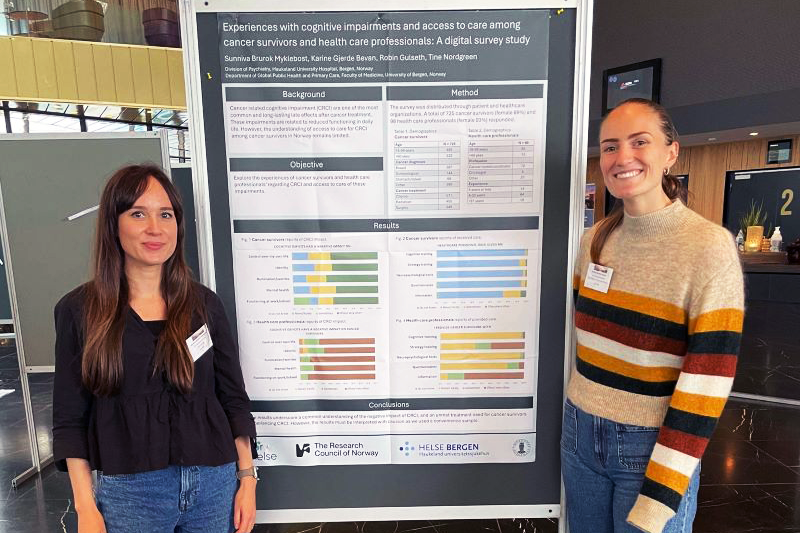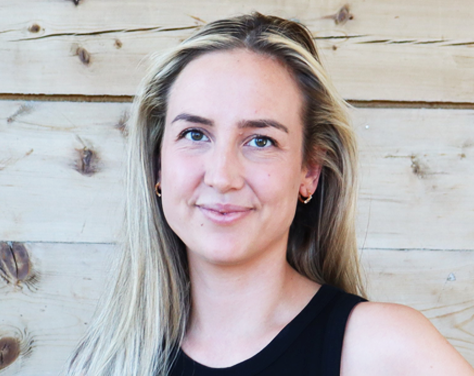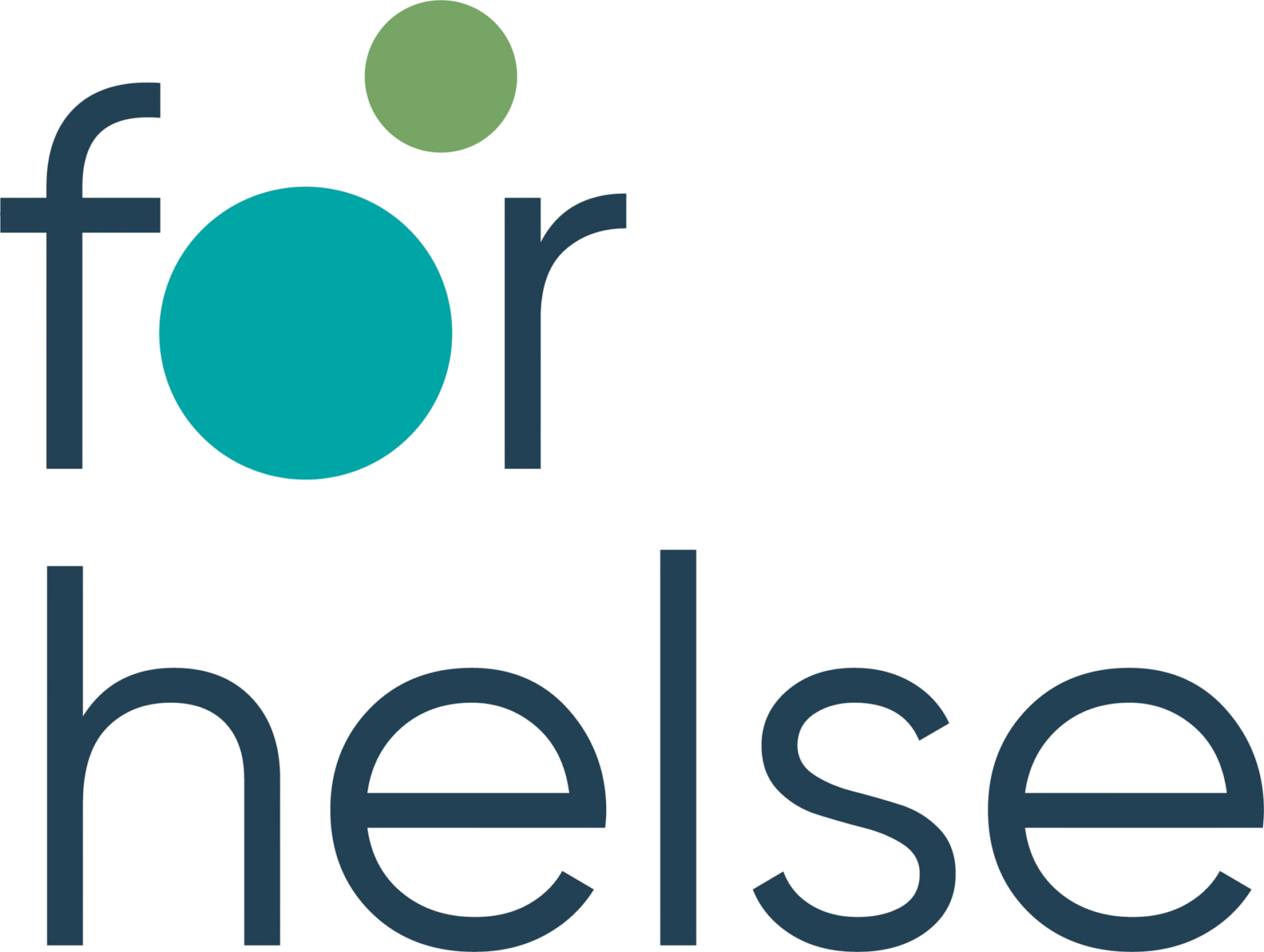Forhelse participated in Nordic neuropsychological conference

On August 28-30, a Nordic neuropsychological conference was held in Trondheim. Three employees from Forhelse participated with poster and presentation.
Researcher Sunniva Brurok Myklebost and research consultant Karine Gjerde Bevan (pictured above) presented a poster showing results from Myklebost’s study on cognitive difficulties after cancer treatment. The poster showed some of the quantitative findings from the study. The study aimed to explore the experiences of cancer survivors and healthcare professionals regarding cognitive difficulties after cancer (CRCI) and access to treatment for these difficulties. The survey was distributed digitally through patient organizations and healthcare organizations, where a total of 725 cancer survivors and 98 cancer care professionals responded to the survey.
Cancer survivors reported that CRCI “often or very often” negatively affected their: work/school functioning (54%), mental health (50%), rumination and worry (61%), control over own life (55%), and identity (54%). Healthcare professionals perceived that CRCI in their patients “often or very often” had a negative impact on: work/school functioning (90.4%), mental health (81.7%), rumination and worry (86.6%), control over one’s own life (73.1%), and identity (67.1%).
Despite these challenges, few cancer survivors reported having “often or very often” received: information about CRCI (3.9%), questionnaires to assess CRCI (1.1%), neuropsychological assessment (1.4%), strategy training (1.7%), or computerized cognitive training (0.6%). While healthcare professionals reported having “often or very often” provided cancer survivors with: information about CRCI (71.3%), questionnaires to assess CRCI (6.3%), neuropsychological assessment (1.3%), strategy training (40.1%), or computerized cognitive training (1.3%).
The results highlight a common understanding of the negative impact of cognitive impairment after cancer, and an unmet treatment need for cancer survivors who experience cognitive impairment.

Researcher at Forhelse Emilie Sektan Norby (pictured left) also participated in the neuropsychology conference. On Friday, she gave a presentation about her doctoral work on a study that combined group discussions and the use of an app for emotion regulation in adults with ADHD, inspired by the principles of dialectical behavioral therapy.
In addition, Emilie presented her ongoing work on a new ADHD app for young people associated with the project UngMeistring i Forhelse.
